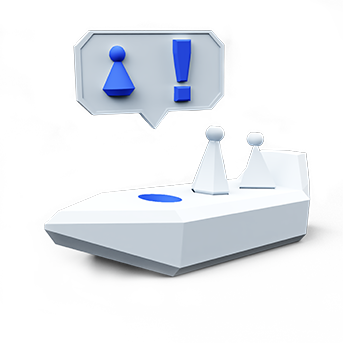Case Study | AI Communication Consultant for a Healthcare Provider
Functional Topic
AI Communication for Organizational Change
Project Industry
Healthcare
Needed Support
AI Communication Consultant
Duration
3 Months
The Challenge
A major healthcare provider in Europe faced resistance to its AI implementation initiatives. The leadership team struggled to effectively communicate how AI would improve patient outcomes and streamline workflows without compromising staff roles. This lack of clarity caused uncertainty among employees and slowed adoption.
The organization needed a targeted AI communication strategy to align its workforce, explain AI’s role in enhancing healthcare delivery, and ensure that employees felt supported throughout the transition. The challenge was relevant due to the complex AI applications in healthcare, which required careful messaging to build trust and transparency.
Role of Consultport
The healthcare provider engaged Consultport to engage an AI Communication Consultant who could craft and execute an effective internal communication strategy. Within 48 hours, Consultport proposed three Consultants with proven experience in managing communication for digital transformations.
The selected consultant had 8 years of experience in leading communication projects at a global communication agency. The consultant specialized in change management communication and AI integration, particularly for healthcare and pharmaceutical clients. Their portfolio included campaigns explaining digital technologies, improving employee buy-in, and driving organizational alignment during transformations.
The Approach
The consultant developed a strong internal AI communication flow, by:
1. Designing a Communication Framework
The consultant collaborated with the leadership team to craft a strong AI communication framework tailored to the healthcare sector. This included clear messaging about how AI would reduce administrative burdens, enhance diagnostic accuracy, and improve patient outcomes. The framework emphasized transparency, addressing employee concerns like job security and workflow changes.
2. Developing Engaging and Targeted Content
The consultant created content to present the changes and initiatives carried out through AI. Materials included video explainers on how AI-powered tools, such as predictive analytics for patient care, would integrate into daily workflows. Infographics highlighted the direct benefits to staff and patients, while newsletters kept employees informed about project milestones and success stories.
3. Facilitating Leadership Alignment and Advocacy
To ensure consistent messaging, the consultant worked closely with department heads and regional managers. Leadership workshops were conducted to give managers the tools to communicate the value of AI to their teams. This step built credibility and ensured messaging consistency across all levels of the organization.
4. Engaging Employees Through Interactive Sessions
The consultant organized Q&A sessions, town halls, and small-group workshops where employees could voice concerns and receive direct answers. Through success stories and case studies, the consultant helped employees understand how AI applications, such as automated scheduling and AI-assisted diagnostics, would make their work more efficient and less stressful.
5. Monitoring Impact and Adjusting Strategy
Feedback mechanisms, such as surveys and participation metrics, were implemented to measure the effectiveness of the AI communication efforts. The consultant used this data to adjust messaging and content delivery, ensuring alignment with employee concerns and organizational goals.
The Results
The AI communication project delivered significant benefits to help the client improve their engagement strategy for their AI transformation initiatives:
Faster Implementation
The communication strategy reduced resistance, enabling the organization to complete the AI rollout in radiology departments two months ahead of schedule.
Improved Understanding of AI
At the internal quizzes conducted on all the employees, 84% reported excellent results and a clear understanding of how AI would support patient care and streamline their workflows.
Enhanced Employee Buy-In
Workshops reached 70% participation rates across clinical and administrative teams, with over 90% of attendees indicating increased confidence in AI’s benefits.
Operational Improvements
After the project, pilot projects were conducted and demonstrated positive results, including a 25% reduction in patient scheduling delays due to AI-assisted systems.
The project was essential in driving trust and understanding among our employees. The AI rollout became faster and more effective! We’re very happy with the results.
— Chief Transformation Officer
Trending Articles






„*“ zeigt erforderliche Felder an
